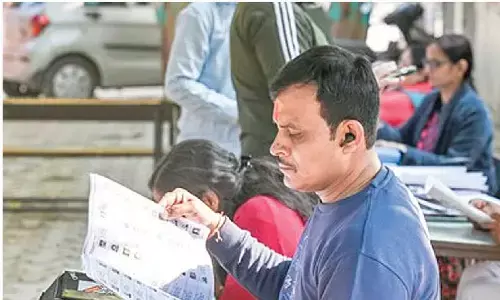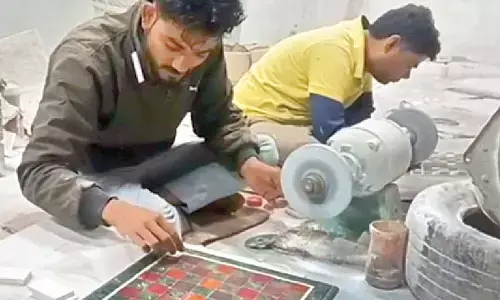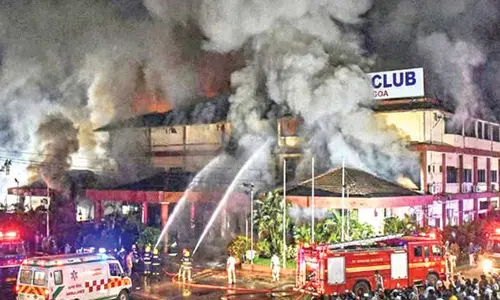Don’t ignore complaints from schools, parents of teenagers advised

On November 4 in Karnataka's Kolar district, the brutal murder of 17-year-old Karthik Singh shocked the entire state.
Bengaluru: Incident 1: On November 4 in Karnataka's Kolar district, the brutal murder of 17-year-old Karthik Singh shocked the entire state. One of the accused claimed that he committed the murder to become a prominent criminal in the district. The video of the murder was made viral on social media.
The boy was attacked with knives and axel blades all over his body. He was tortured and the prime accused had also carved the first letter of his name on the face and body of the deceased minor boy with a knife.
The Karnataka Police have shot the two juvenile accused in the leg in connection with the case. The parents of the victim had urged the police to shoot the accused for displaying such barbarity.
Kolar Superintendent of Police, M. Narayana, had earlier suspended three police officers in connection with the incident for negligence. Activists expressing concern over the development had initiated 'Save Kolar' and 'Save Youth' movements on social media.
The Karnataka Police had conducted awareness programmes for the student community at colleges in the district. The district administration has also taken the developments seriously and asked the police department to prevent the recurrence of such crimes in the region.
Incident 2: On June 21 in Mysuru, two elderly guards at a sawmill in Hunsur town were brutally murdered. A teenager was among three held for killing a guard brutally for just Rs 488 to purchase ganja.
The accused had murdered 75-year-old and 65-year-old guards by smashing their heads with iron rods while they were asleep. The 16-year-old minor had instigated the accused to commit the crime.
Satish Kumar CR, Consultant -- Clinical Psychology, Manipal Hospital, Bengaluru, told IANS that in order to prevent teenagers from developing a criminal mentality, early identification of such tendencies is significant.
"This is called delinquency, where a criminal is involved below the age of 18 years. A teenager committing a crime is referred to as delinquency. There are certain assessments which are identified. The first is conduct disorder (CD). It is characterised by manipulating, bullying, lying, stealing, cheating. Children who have conduct disorder grow into adults with anti-social personality," Satish said.
The second thing is called oppositional defiant disorder (ODD). It is also characterised by stealing, lying, manipulating, bullying and threatening. The child is good outside, only at home the child is aggressive with elders in the family.
“A lot of them with ODD and CD will have trauma in the family. If the father is an alcoholic or an aggressive person or the father is a criminal. If parents have marital complaints and if there is domestic violence at home. If parents have any other issue outside the family, a broken house, the family culture is the main reason," he said.
There is a need to understand the tendency and behaviour of children and teenagers. If behaviour is aggressive, at the school level, the child will be dominating others and will bully. At family level, children can manipulate parents and steal money or will be lying a lot.
The behavioural and emotions are main indicators. Most of the time there will be complaints from the teachers, classroom and neighbourhood. But most of the time parents ignore. They don't take it seriously, he added.
They also turn to crime mostly because of socioeconomic factors and social pressure as well.
"Free education, helping them to become more educated, and raising public awareness are also necessary. The community can help them by providing social equality," Satish said.
Sachin Baliga, Consultant -- Psychiatry, Fortis Hospital, Bengaluru, told IANS that very often, such individuals come from impoverished backgrounds replete with financial issues, domestic violence and neglect, problematic neighbourhoods, along with alcohol and drug use.
"To add to that, many also suffer from undiagnosed mental health conditions such as personality disorders, drug addictions, and anger issues. As a result of these factors, these adults develop a callous, remorseless attitude towards others, along with a prominent lack of empathy and a disregard for societal rules
and norms."
Many also suffer from a difficulty in regulating their emotions and develop impulsive nature, leading to sudden bursts of violence with nary a thought about its consequences, Baliga said.


















